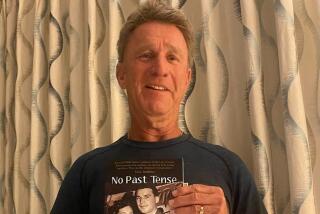Peacekeepers Must Be Buffer Against Hate, Nobel Winner Tells Clinton
- Share via
WASHINGTON — Holocaust survivor and Nobel Peace Prize winner Elie Wiesel told President Clinton on Wednesday that peacekeeping troops will have to remain in Kosovo for many years as a “living buffer” to prevent old hatreds, newly inflamed by the Serbian campaign of “ethnic cleansing,” from erupting into a blood bath.
Reporting on a visit to refugee camps in Albania and Macedonia housing hundreds of thousands of ethnic Albanians who had been driven from Kosovo, Wiesel said he feared a cycle of escalating vengeance in the province.
A survivor of Auschwitz and Buchenwald who has spent his life trying to keep fresh the lessons of the Holocaust, Wiesel said the refugees told him: “ ‘What do you know about these things? You can’t understand us.’
“I didn’t speak. I came only to listen, and listened and listened and listened,” Wiesel said. “But I would have said to them, ‘Look, I belong to a generation that has suffered, and we built on ruins. We managed to channel our anger into something constructive for the benefit of human beings.’ ”
Wiesel talked to reporters after meeting with Clinton, who sent him to the refugee camps as a special representative.
Although some ethnic Albanians have said they are determined to take revenge once the Serbian army and police are driven out of Kosovo, Wiesel’s report was the first one with the imprimatur of the U.S. government to warn of postwar violence.
“Too much has been done,” Wiesel said. “Too much cruelty has been endured by the victims. Too much brutality has been demonstrated by the victimizers. It will take a long time for Serbians and for Albanians to live together again as they had done before 1989.” In 1989, Slobodan Milosevic, the Yugoslav president, sharply reduced the autonomy of the province where ethnic Albanians outnumbered Serbs by 9 to 1.
Wiesel said Clinton told him that an immediate return of refugees would be traumatic because of the fresh hatred on both sides. Wiesel replied that mutual hatred could not be used as an excuse to delay their return. Instead, he said, the international community must strive to overcome the animosity. In the meantime, the NATO-led peacekeepers must protect each community from the other.
Asked how long that would take, Wiesel said: “I don’t know how many years. They will have to stay there a very long time. It takes time to cure a person, a community, of its disease, for hatred is a disease.”
He said he urged Clinton to “organize a seminar or a symposium of spiritual and moral leaders and try to bring the two communities together. It’s going to be very, very hard, but the beginning must be made sometime.”
Asked if he had forgiven the Nazis, Wiesel said: “I didn’t speak about forgiving. . . . Nobody asked me to forgive, nobody authorized me to forgive. I speak on behalf of memory without hatred, and I think memory, in my case, is a shield against hatred. [But] in Bosnia and in Kosovo, memory fed hatred. For me it was a discovery which hurt me personally because they remember that they hate.”
Wiesel endorsed NATO’s war aims from the beginning, helping the alliance to rebut critics who complained that the bombing caused civilian casualties and made conditions worse.
“I’m against war,” he said. “War is always ugly. War only has victims, not winners. . . . I am against it. And nevertheless, I accepted this war.”
More to Read
Sign up for Essential California
The most important California stories and recommendations in your inbox every morning.
You may occasionally receive promotional content from the Los Angeles Times.












